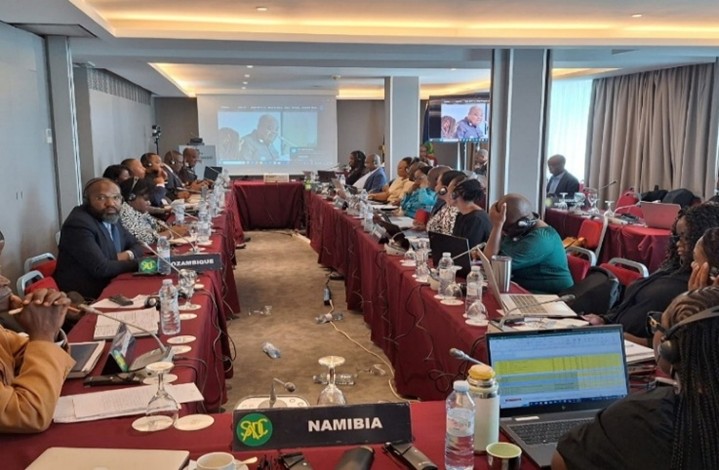

Angola finalises preparations to join the SADC free trade area, strengthening regional economic integration
Luanda, Angola - The Southern African Development Community (SADC) Secretariat, with the support of the Cooperation for Strengthening SADC Regional Economic Integration (CESARE) program, funded by the German Federal Ministry for Economic Cooperation and Development (BMZ) and co-financed by the European Union (EU) through GIZ, successfully organized a Trade Negotiation Forum (TNF) to finalize Angola's accession to the SADC Free Trade Area (FTA). The forum took place from February 17 to 21, 2025, following a previous session in October 2024, both held in Luanda.
Angola will become the 14th SADC Member State to join the regional market, marking a historic step in the consolidation of the SADC Free Trade Area, the most significant milestone in the last decade. This accession opens up immense economic opportunities, as Angola will benefit from reduced customs duties and the elimination of non-tariff barriers, promoting more fluid trade within the region. In turn, other SADC Member States will have better access to the Angolan market for their products and services, which will contribute to economic growth and promote regional prosperity.
At the Forum's opening, Mr. Dhunraj Kassee, Director of the Industrial Development and Trade (IDT) Directorate of the SADC Secretariat, welcomed the delegates and emphasized the strategic significance of Angola's accession. He highlighted how the SADC FTA serves as a catalyst for economic growth, increases consumer choice, attracts investment, and generates employment opportunities, in line with the fundamental objectives of the SADC Treaty of reducing poverty and improving living standards throughout the region. The Director was confident that this milestone will be formally approved at the upcoming TNF and Committee of Trade Ministers (CMT) meetings in May and June 2025, leading to full ratification and implementation.
In his remarks, Mr. Blessing Rwaveya, representing the Ministry of Foreign Affairs and International Trade of Zimbabwe, on behalf of the SADC Chair, applauded Angola's commitment and congratulated the SADC Secretariat for facilitating the negotiations. He acknowledged the hospitality of the Angolan government and the progress made, stating that this second forum dedicated to the TNF was essential for finalizing Angola's tariff offer, a crucial step towards full regional economic integration.
Representing the host country, Mr. Anatoly Domingos, Director for Integration and Economic Development of the Ministry of Trade and Industry of Angola, expressed his appreciation for the unwavering support of the SADC Secretariat and other Member States. He emphasized that Angola has been a key economic player in the SADC region and that formal accession to the Protocol on Trade will further strengthen trade relations, boost economic cooperation, and position Angola as a vital platform for regional trade.
After extensive deliberations, Angola was able to satisfy the requests of its SADC counterparts, securing a unanimous agreement to join the SADC FTA. This milestone is not only a victory for Angola, but also a significant achievement for the region, reinforcing SADC's commitment to deepening economic integration, promoting intra-regional trade, and increasing economic resilience.
With the inclusion of Angola, the SADC Free Trade Area takes a step forward, opening new avenues for industrial development, investment, and cross-border trade. This achievement underscores the region's collective vision for a more interconnected and economically vibrant Southern Africa.
As Angola formally integrates into the SADC Free Trade Area, businesses, investors, and consumers across the region will benefit from increased economic opportunities, reduced trade barriers, and a more competitive regional market. The upcoming TNF and CMT meetings in mid-2025 will finalize the legal and procedural steps, ensuring the smooth and efficient implementation of this historic agreement.
For the SADC region, this marks a new era of enhanced economic cooperation, reinforcing its position as a thriving trade and investment destination on the African continent.

